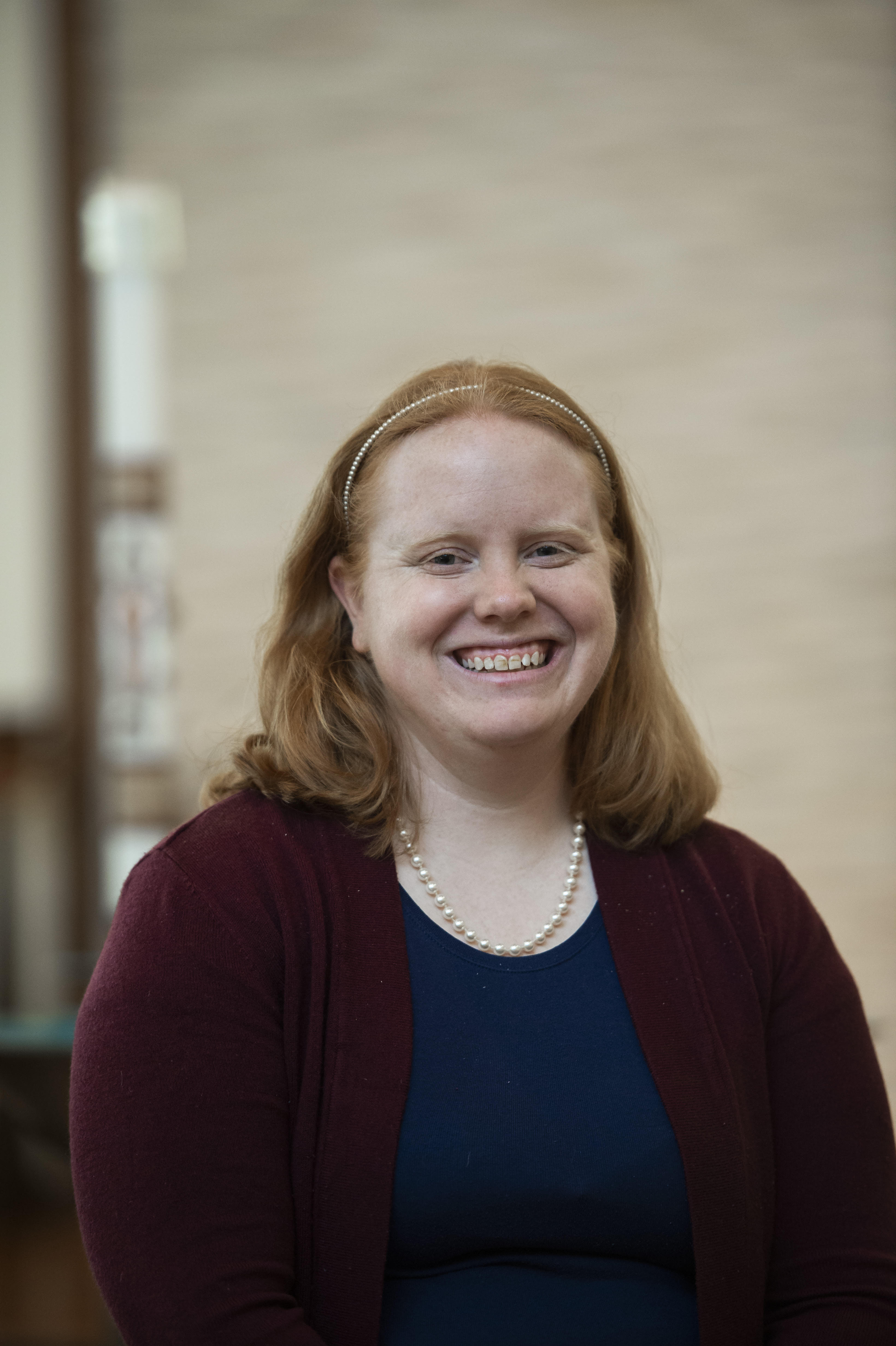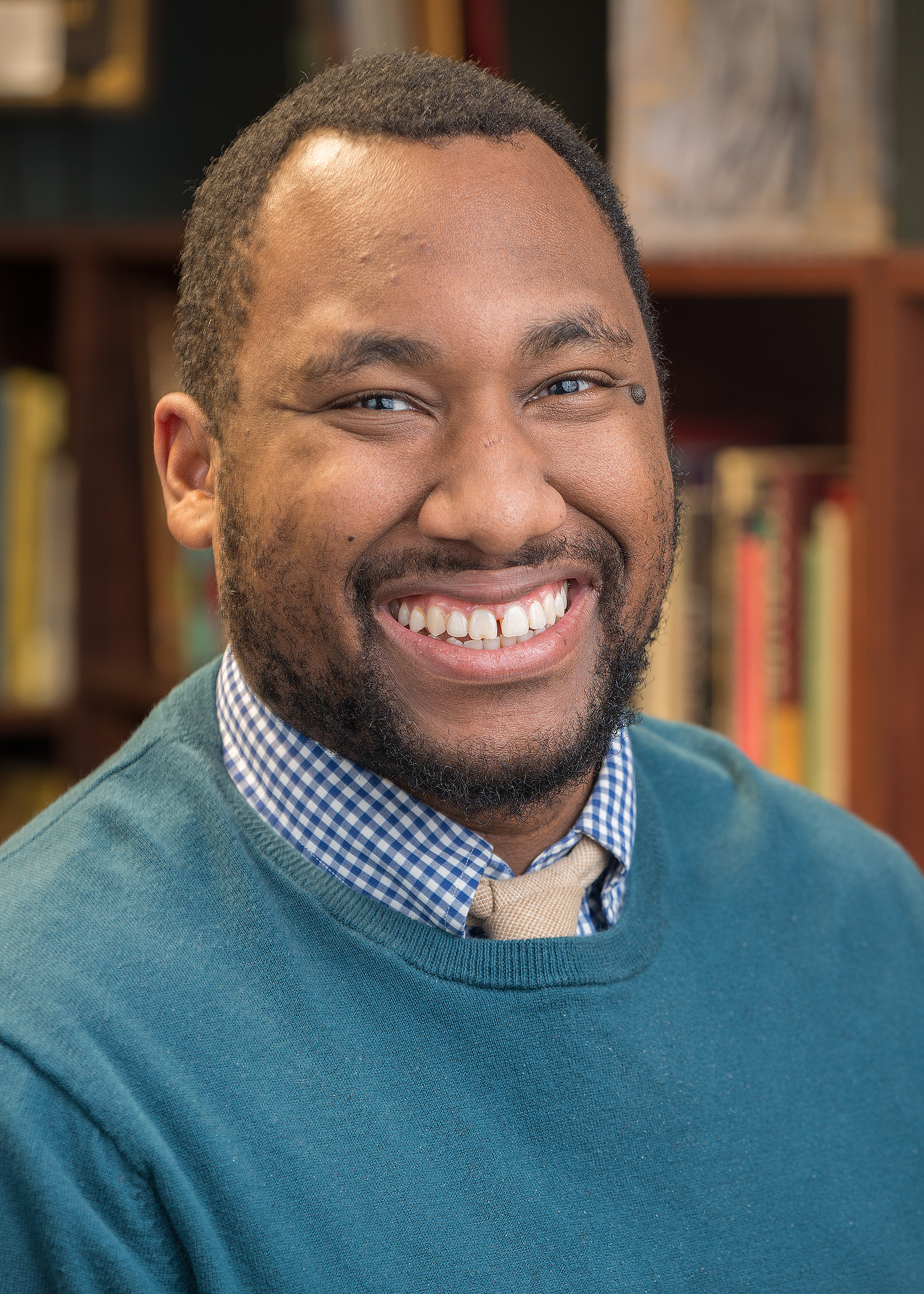Sixteenth Sunday after Pentecost
Adult and Small Child
Allison Liles

The Rev. Allison Sandlin Liles is a wife, mother, peacemaker, and priest learning to navigate life in the suburban wilds of Dallas, Texas. After working as Episcopal Peace Fellowship’s Executive Director for six years, Allison has re-entered parish ministry in the Diocese of Fort Worth. She currently serves as the Priest-in-Charge of St Stephen’s Episcopal Church in Hurst, Texas and the editor of Grow Christians, a ministry of Forward Movement.
Read: Luke 16:19-31
Reflect: I remember a stark transition in my children when they were around two years old. It seemed like overnight they went from focusing only on their own needs to noticing obvious needs of other people. Now at eight and ten years of age, they still act as my moral compasses while we drive around town. They notice every single Lazarus lying on the street, covered in sores, and begging for scraps of food to satisfy their hunger. How much longer until my children’s perspective changes once again, this time going back to ignoring other peoples’ needs? As an adult, it’s so easy for me to remain oblivious to the Lazarus in my path. I need my children’s fingers pointing them out to me from the backseat and their voices reminding me that Jesus says we are to feed them.
Respond: Go to the grocery store with the specific task of buying food to share with people who are hungry. Before giving the food away, say a prayer over it, asking that it might nourish the people who consume it in the future. If you pass people on the street asking for help, buy food that you can keep in your car to distribute as needed. Be sure to avoid foods that might melt or spoil! Roll down the back window so your child can greet the person and hand them food themselves. Another option is to purchase non-perishable food at the grocery store and then deliver it with your child to a local food pantry.
-Allison Liles
Adult and Elementary Victoria Hoppes is the Director of Youth and Children's Ministries at Resurrection Lutheran Church in Indianapolis, Indiana. She has ministry experience with youth, family, and camping programs at both the parish and diocesan levels. She holds degrees from Texas Lutheran University and Luther Seminary. She also holds a certificate in Youth and Family Ministry from Forma’s certificate program. You can follow Victoria on social media (@vlhoppes).Victoria Hoppes

Read: Luke 16:19-31
Reflect: When you look around your school or community, do you see people in need? In this parable, the rich man overlooks Lazarus, someone who is in need. Lazarus is clearly hurting, and the rich man doesn’t do anything to help him. Sometimes we are so focused on ourselves or our immediate surroundings that we don’t take time to pay attention to how God is present in the people around us, especially people who are in need.
As Christians, we are called to love and serve our neighbors. Part of living out this calling is to pay attention to who our neighbors are and be willing to help them. This means that we have to think beyond ourselves and what makes us comfortable. We have to look for where Jesus is present in the people around us. As our baptismal covenant says, we need to “seek and serve Christ in all persons,” especially in those who most need to know Jesus’ love.
Respond: Take a walk around your community. Who do you see in need? How can you help them? Find one way to love and serve your neighbors, based on the needs of your community. You might consider collecting food for a pantry, volunteering at a local feeding ministry, or sharing clothing or toys with a local shelter.
-Victoria Hoppes
Where do you see the presence of Christ in the face of those in need?
Adult and Youth Wallace Benton serves as the Assistant to the Rector for Youth Ministries at St. David's Episcopal Church in Roswell, GA. He's been fortunate to have grown up in the Episcopal Church and became interested in youth ministry after volunteering with his former youth program after college. Wallace has worked diocesan retreats and activities such as New Beginnings and Happening.
Currently, he is the lay director for New Beginnings in the Diocese of Atlanta. He is also a member of the Episcopal Youth Ministry in ATL podcast (which you should check out immediately!)
Wallace Benton

Read: Luke 16:19-31
Reflect: Jesus tells us another parable of a wealthy man and a poor man named Lazarus. Lazarus, who was covered with sores and starving, died at the gates outside of the wealthy man’s home and was taken to heaven with Abraham. Meanwhile, the wealthy man died and was being tormented. When the wealthy man looked to see Lazarus, he asked for Lazarus to help cool his tongue to ease the agony. Abraham responds that is not possible because the wealthy man benefited in life, unlike Lazarus. Abraham says that Lazarus will benefit in the afterlife because he suffered before, while the wealthy man will continue to suffer in the afterlife. The wealthy man asks Abraham to send Lazarus to warn his brothers so they are not tormented as well. Abraham replies that the wealthy man’s brothers have the Word (Moses and the prophets) to keep them from torment. When the wealthy man alludes they won’t listen to only the Word, Abraham says they will not be convinced to change their lifestyle anyways.
Luke’s Gospel really hits home two big points. The first is paying attention to the needs around you and find ways to help those if you are able. The second point is listening to God’s Word. The wealthy man and his family have the opportunities to listen to Moses and the prophets and chose not to. We all have opportunities to slow down, see the world’s needs, and listen to God’s voice, but we don’t always choose to.
Respond: Take a deep breath and meditate on your day. What needs do you miss on a regular day at school, work, etc.? When do you miss God’s voice encouraging you throughout the day? How can you serve the needs of others and God? Say a prayer to close your meditations to seek God’s presence and to serve others.
-Wallace Benton
Adult and Adults Regina Heater (she/her/they is a self-avowed and practicing ecumenist, story-collector and story-sharer. A church administrator for a United Methodist Church in Northern NJ, she's exploring how administration, communication, faith formation and pastoral care all intersect in the church office. She often creates and posts #PrayersForDaysThatEndInY on the social internet. Connect with her at www.reginaheater.com.Regina Heater

Read: Luke 16:19-31
Reflect: Let’s talk about the Rich Man’s family in this parable. The Rich Man begs Abraham to send Lazarus to talk to his father and brothers, to warn them that they are on a path that will lead them to Hades. Abraham declines the personal (resurrected!) messenger, basically saying they already know what they need to know: Moses and the prophets have shared that message, and that should be enough: not even someone rising from the dead will convince them otherwise.
Reading the text, it’s possible that you might think, “that’s ridiculous!” We know that ghosts are effective communicators of doom - just ask Ebenezer Scrooge. How much more impact might a resurrected man have? Why wouldn’t that shake someone to the core and set them on the right path? More importantly, why is Abraham refusing this request?
It’s simply this: like the prophet Micah tells us, “He has told you, O mortal, what is good…” (Micah 6:8, NRSV). We have no reason to claim ignorance about what is right and good, how to behave, what to do in the world. We have the teachings of Moses, the prophets - and even a resurrected man to instruct us. What will it take for you to pay attention?
Respond: What’s your “touchstone teaching” of Jesus - the one that consistently and reliably reminds you of how you are to be in the world? Share that with a trusted friend this week, telling them why it’s meaningful and how to try to live it out.
-Regina Heater
Download a printable copy of this week's devotions HERE.
Tags: Lectionary Based Readings & Reflections / Latest Posts

